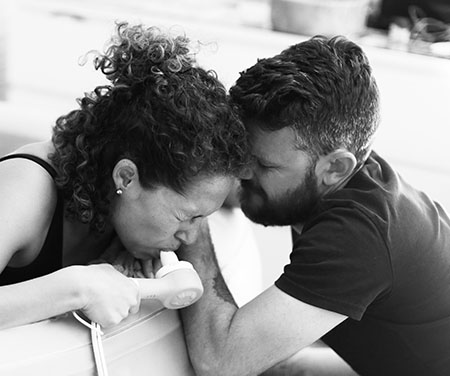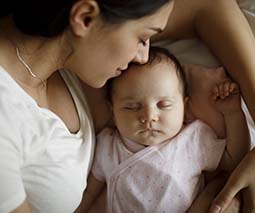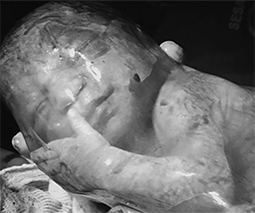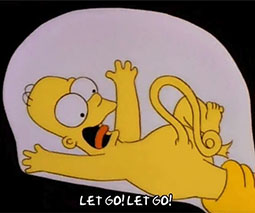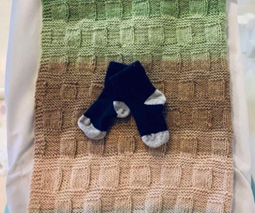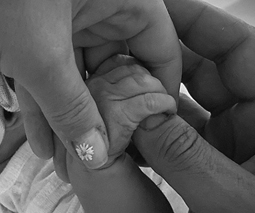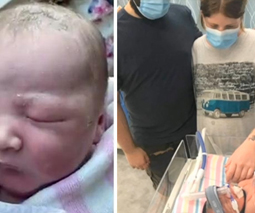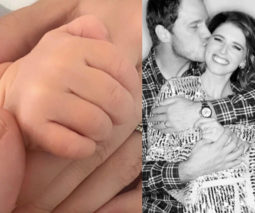Postpartum care crisis: Do new mums “slip through the cracks”?
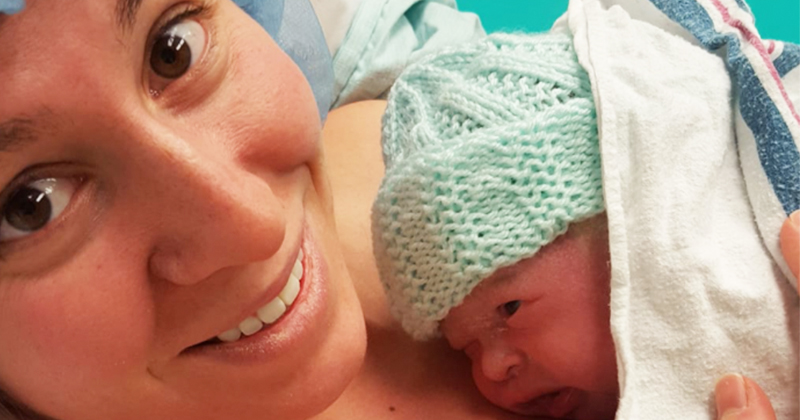
A recent Facebook post by blogger and mama Anneliese Lawton has zeroed in on just how sidelined and anchor-less many women feel in the weeks after they give birth – and her words have gone wildly viral.
What about … mums?
Anneliese manages to capture the feeling of being a mere vessel and/or carer for the next generation pretty brilliantly (and sadly!) noting that she felt clueless, ignored and frankly, pretty overwhelmed when her babies were born.
While there’s lots of focus on women’s’ health during pregnancy, once a baby arrives women are sometimes left to their own devices. It’s hard to explain the surreal feeling that washes over you when you realise you are totally responsible for a brand new life. Add to that the notion that instinct will kick in – and women will muck in and push on – and many mums are left feeling bewildered, exhausted and unsupported.
Read more on postpartum mums:
- “This Is Postpartum”: Brilliant mums are sharing all kinds of post-baby bodies
- Disappointed Keira Knightley says Duchess Kate hides the truth about childbirth
- “Cruel and savage sickness” Adele’s must-read post about postpartum psychosis
Fragile feelings
It’s these fragile feelings that Anneliese tabled on Facebook – and the fact that the health of postpartum women must be made an absolute priority and is just as important as a new infant’s health.
“After my boys were born, there were appointments. To check their latch. To check their weight. To check their hearing. To check the colour of their skin for signs of jaundice. There were appointments. There were regular pokes and prods. Their well-being was front and centre.”
“Then there was me. A first-time mom without a clue. Engorged, bleeding, and stitched up. Sent home with some painkillers and stool softeners. Thrown into motherhood with the expectation my instincts would kick in. That I would know how to handle colic and late night feedings. That breastfeeding would come as nature intended.”
“We become background noise”
Anneliese says her experience was that once she’d had her baby, her healthcare was pretty much suspended. She felt like her needs and health were relegated to the bottom of the pile.
“No one poked me. No one prodded. No one checked my stitches, my healing, or my sanity until eight weeks postpartum. And even then, it was a pat on the back and I was sent on my way. Our world forgets about mothers. We slip through the cracks. We become background noise. And in that, we learn our role … our place in our family unit … to always come last.”
“We’re not just a uterus”
Her Facebook post sheds light on the sort of postpartum experience some mothers are receiving and suggests reform is needed if we’re to help mums thrive once they’ve had their babies.
“Folks, we can’t put mothers last,” Anneliese wrote.”Mothers deserve attention … We need to be seen. We need to be heard. We need someone to not only ask if we’re okay but to check time and time again, just to be sure. We’re not just a uterus. We’re not just a lifeline to a new and precious soul. We’re mothers. And we need someone to make sure we’re ok, too.”
After my boys were born, there were appointments.To check their latch.To check their weight.To check their…
Posted by Grown Up Glamour by Anneliese Lawton on Monday, 15 October 2018
A mixed and passionate response
Anneliese’s post sparked a lot of discussion and sharing of postpartum care experiences:
“I rarely send baby gifts to new mothers,” one woman wrote. “I send gift certificates for mani and pedicures, or send flowers to mom 3-4 weeks in and tell her I know she is tired – and she’s doing a great job. Even volunteer to babysit so they can get a good shower or use the gift certificates. I give time and gifts to the mom.”
“This is part of the reason why I became a doula,” another woman explained. “To bring the attention back to mothers. To show them they are not invisible. We love supporting families as a whole.”
The Dutch way
Another mum suggested that other cultures are much more compassionate when it comes to caring for new mums.
“In Holland, we have kraamverzorgende ” one woman wrote. “This is a kind of nurse (like a midwife) who comes to our homes and takes care (mental and physical care and healing) of the baby, the mother and her family. Brings other children to school. Takes care of the house, makes meals etc etc.”
“Most of the time they stay for about a week up to two weeks depending on how much help the family needs. They also come after a baby has been hospitalized. I think Holland is one of the few countries (maybe the only one) to provide this service. Most of the time it is free (depending on your insurance).”
And honestly, doesn’t that sound amazing?!
Two sides to the story?
Other mums shared their own stories and hinted that a lack of care may have contributed to postnatal depression.
“I had my 8-week check up with my OB last week,” one new mum wrote. “I left feeling like I didn’t matter. She did a quick exam then asked me about birth control and sent me on my way. Didn’t even ask me how I was feeling or how the recovery was. I have been struggling with postpartum depression, my doctor wrote me a prescription and said good luck with everything and walked out of the room.”
But others still said this is a systemic issue, and that many medical professionals are working overtime to try and ensure mums are properly cared for in those early hours, days and weeks.
“Well that’s unfair,” one wrote. “Your nurses checked your vital signs for signs of infection, postpartum hemorrhage, shock. They checked your fundal height and firmness, your pad, about of bleeding, colour of lochia. They gave you as much information as humanly possible about what to expect postpartum and as a new mother. Handouts, surveys, pamphlets. Assessed your nipples for soreness, assessed the latch for proper milk transfer. They swaddled your baby and changed his diapers. They called the doctor for any and all concerns, even if it’s the middle of the night and they get yelled at. They checked on you, asked if you needed anything. Even if you said no; they still checked in frequently. Your nurses left their own families at home to come care for you for 12 straight hours at a time.”
Don’t go it alone, new mums
It’s so clear that postpartum care is something that lots of people have experiences of and opinions on. While some women are able to access the care they need, many others have limited choices and are feeling unsupported.
We’re grateful that Anneliese sparked this important discussion – and hope that women who DO find themselves struggling will reach out to their maternal child health nurse or GP to seek further support. It’s definitely a very difficult thing to do, but know that it’s completely normal to find new mum life a challenge – rather than a celebration. Don’t go it alone. The sooner mums seek help, the better.
